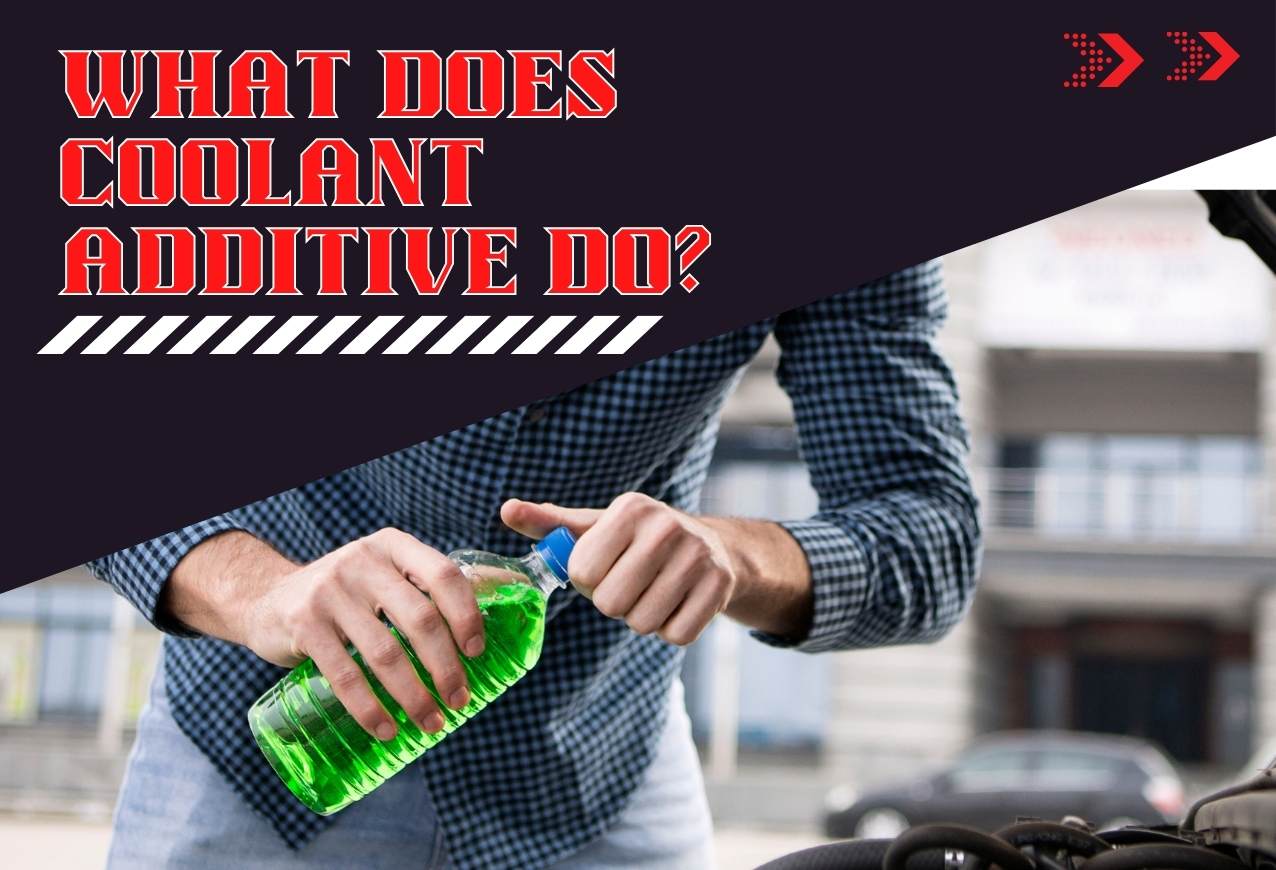What Does Coolant Additive Do?
Your vehicle’s engine is working hard, generating a significant amount of heat. In such conditions, the cooling system of your car plays a crucial role in maintaining optimal engine temperature. However, coolant alone isn’t always enough to protect your engine from overheating. This is where coolant additives come into play and this article is all about coolant additives.
What is a Coolant Additive?
A coolant additive is a special liquid that you add to your car’s coolant to help keep your engine healthy. It’s like giving your engine a little boost to stay in top shape.
Think of your engine like a person running a marathon. When you run, you get hot and sweaty, right? Your body needs water to cool down and keep going. Well, your engine gets hot too, but instead of sweating, it uses coolant to stay cool.
Coolant is the liquid that flows through your engine to soak up all the extra heat. But sometimes, the coolant needs a little help to do its job better. That’s where coolant additives come in.
Coolant additives are like vitamins for your car’s cooling system. They help prevent rust and corrosion, which can damage your engine. They also help the coolant transfer heat more efficiently, so your engine stays at the right temperature.
In simple words, coolant additives make sure your engine stays cool and healthy, just like how you drink water to keep running strong in a marathon.
What Does Coolant Additive Do?
Coolant additives play a crucial role in maintaining the health and performance of a car’s cooling system. Here’s a detailed explanation of what they do:
Corrosion Protection
Coolant additives contain inhibitors that help prevent corrosion and rust formation within the engine and cooling system. These inhibitors form a protective layer on metal surfaces, preventing them from reacting with coolant or water and deteriorating over time. This protection is essential for maintaining the integrity of engine components and ensuring the longevity of the cooling system.
Heat Transfer Enhancement
Coolant additives improve the heat transfer properties of the coolant, allowing it to absorb and dissipate heat more effectively. This is achieved through the use of additives such as surfactants, which reduce the surface tension of the coolant, allowing it to make better contact with hot surfaces and absorb heat more efficiently.
By enhancing heat transfer, coolant additives help regulate engine temperature, preventing overheating and ensuring optimal performance.
Lubrication
Some coolant additives also serve as lubricants for the water pump and other moving parts within the cooling system. These additives help reduce friction and wear on these components, extending their lifespan and ensuring smooth operation.
Lubricating additives are particularly important in older vehicles with mechanical water pumps, as they help prevent premature wear and failure of these critical components.
pH Balance
Coolant additives also help maintain the pH balance of the coolant. The pH level of the coolant affects its corrosive properties, and additives are used to keep the pH within a safe range to prevent damage to engine components. By stabilizing the pH, coolant additives help protect against corrosion and ensure the longevity of the cooling system.
When to Add Coolant Additive?
You should add coolant additives when you’re changing your coolant, which is usually done as part of regular maintenance or every 2 to 5 years depending on the type of coolant used. Coolant additives are mixed with the new coolant before you put it into your car.
If you notice any signs of rust or corrosion in your cooling system, like discolored coolant or particles floating in it, it’s a good idea to add a coolant additive. This helps protect your engine from damage.
Some coolants come with additives already mixed in, so you may not need to add more. Always check your car’s manual or ask a mechanic if you’re not sure. Adding too much additive can be harmful, so it’s important to follow the instructions carefully.
Can a Vehicle Run Without Coolant Additives?
Yes, a vehicle can run without coolant additives, but it’s not recommended for long-term use. Coolant additives play important roles in protecting the engine and cooling system, so running without them can lead to potential problems.
Coolant additives help prevent rust and corrosion inside the engine and cooling system. Without additives, the metal components could corrode over time, leading to leaks and potentially serious engine damage.
Additionally, coolant additives help the coolant absorb and transfer heat more effectively. Without them, the engine may have trouble regulating its temperature, which can lead to overheating and engine failure.
In summary, while a vehicle can technically run without coolant additives, it’s not advisable for long-term use as it can lead to damage and potentially costly repairs. It’s best to follow the manufacturer’s recommendations for coolant and additive usage to keep your engine running smoothly.
What is Coolant Additives Usually Made of?
Coolant additives are typically made of a mixture of chemicals that serve different purposes. Some common components of coolant additives include:
Corrosion Inhibitors
These chemicals help prevent rust and corrosion within the engine and cooling system. They form a protective barrier on metal surfaces, preventing them from reacting with water or coolant.
Surfactants
Surfactants are used to improve the wetting and heat transfer properties of the coolant. They reduce the surface tension of the coolant, allowing it to make better contact with hot surfaces and absorb heat more efficiently.
Lubricants
Some coolant additives contain lubricating agents that help reduce friction and wear on moving parts within the cooling system, such as the water pump.
pH Buffers
pH buffers are used to stabilize the pH level of the coolant. The pH level affects the corrosive properties of the coolant, so buffers are added to keep it within a safe range.
Anti-Foaming Agents
These agents help prevent foaming in the coolant, which can reduce its ability to transfer heat effectively.
Colorants
Colorants are added to coolant additives to help distinguish them from other fluids in the engine and to indicate when the coolant needs to be changed.
Related


I’m Alex, a seasoned mechanical teacher with over 20 years of hands-on experience in Australia. My passion for all things automotive has driven me to establish this blog, aiming to share my wealth of knowledge and expertise with fellow enthusiasts, DIYers, and anyone keen on understanding the mechanics behind the machines we rely on daily.





![Does Tire Size Affect Speedometer? [Myths Busted]](https://vehiclecraz.com/wp-content/uploads/2023/11/ElecdiaryPresspallettevehiclecraz-33-768x512.jpg)

